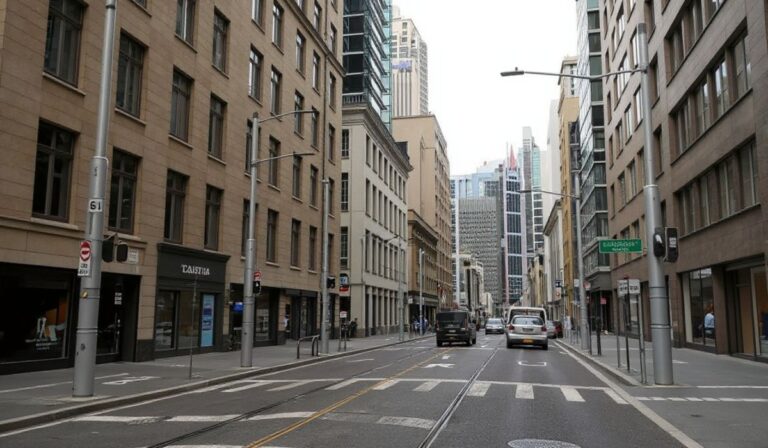
There are approximately 720,150 international students enrolled across various education sectors in Australia.
About half of them are private renters.
Many international students in Australia depend on part-time jobs to pay rent, but have been let go or had their hours cut due to the current COVID-19 pandemic.
According to a survey by The Conversation, international students in Australia struggled to pay rent even before the pandemic.
Nearly one-quarter (22 percent) of respondents said they “quite often go without necessities like food, so I can pay for my accommodation” while 17 percent answered “yes” when asked if they had felt like they could become homeless in the last year.
Other key findings were that 46 percent said they had to have a paid job to be able to pay the rent.
 Australia is in lockdown, shuttering many businesses and leaving many jobless.
Australia is in lockdown, shuttering many businesses and leaving many jobless.
Know your eviction rights
First, you should know that you can’t be evicted for the next six months. On March 29, the National Cabinet imposed a six-month eviction moratorium due to the current situation, meaning landlords are not legally allowed to evict their tenants even if they can’t pay their rent due to loss of income.
But that doesn’t mean you are rent-free for the next six months, just that it buys you some time. Your rent debt will accrue and you will need to pay the owed rent after the moratorium is over or you’ll face eviction.
Try negotiating with your landlord
If you’re financially tight, try talking to your landlord to see if they can waive your rent or give you a reduction.
There is currently only government-mandated six-month rent relief for commercial units, so residents are advised to negotiate with their landlords.
Australian banks are also offering a six-month deferral for home mortgage payments. This means your landlord will not have to make their mortgage payments during this time, so they may be willing to let you pay your rent later or give you a reduction/relief.
 Workers take a lunch break on the empty stairs of the Opera House on Circular Quay in Sydney on March 25, 2020, as people stay away due to restrictions to stop the spread of the worldwide COVID-19 coronavirus outbreak.Tenants Union of New South Wales, it might be in their interests to agree to a reduced or no rent for a de months because it will most likely be more difficult and expensive to replace you as a tenant.
Workers take a lunch break on the empty stairs of the Opera House on Circular Quay in Sydney on March 25, 2020, as people stay away due to restrictions to stop the spread of the worldwide COVID-19 coronavirus outbreak.Tenants Union of New South Wales, it might be in their interests to agree to a reduced or no rent for a de months because it will most likely be more difficult and expensive to replace you as a tenant.
Not sure how to go about discussing this with your landlord? Sage, one of the community members at Tenants Union of New South Wales, has helped draft a letter template that you can use to send to your landlord. Just remember to edit with your own personal details before sending it off.
They also advise you to check out this statement from the Real Estate Institute of Australia.
 Many international students in Australia have lost their jobs due to the pandemic.
Many international students in Australia have lost their jobs due to the pandemic.
Breaking your lease
What if you need to get out of your lease? According to The Conversation, if you’re on a monthly or weekly tenancy, you will need to give your 21-day notice.
But if you’re on a fixed-term lease, you can check your agreement to see if there is a break clause. For example, there may be a break clause that says you can end your fixed-term lease early if you give a two-month written notice.
Not all agreements are required to have a break clause. If you don’t have one, you will need to negotiate with your landlord to release you from your lease early.
 People wearing face masks walk in the streets of Sydney’s central business district on Easter Saturday on April 11, 2020. Source: Saeed Khan/AFP
People wearing face masks walk in the streets of Sydney’s central business district on Easter Saturday on April 11, 2020. Source: Saeed Khan/AFP
According to the Tenants Union of New South Wales, the law allows both tenants and landlords to apply to break a fixed-term lease without penalty if there is undue hardship.
In that case, you will need to give your landlord or agent a written termination notice, and/or apply to the NSW Civil & Administrative Tribunal (NCAT) for a termination order.Help
Liked this? Then you’ll love…
Jobless & stranded, international students in Australia ask for government help: ‘We are humans too’
Why 20,000 international nursing students are staying back in Australia







